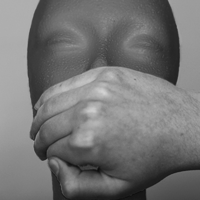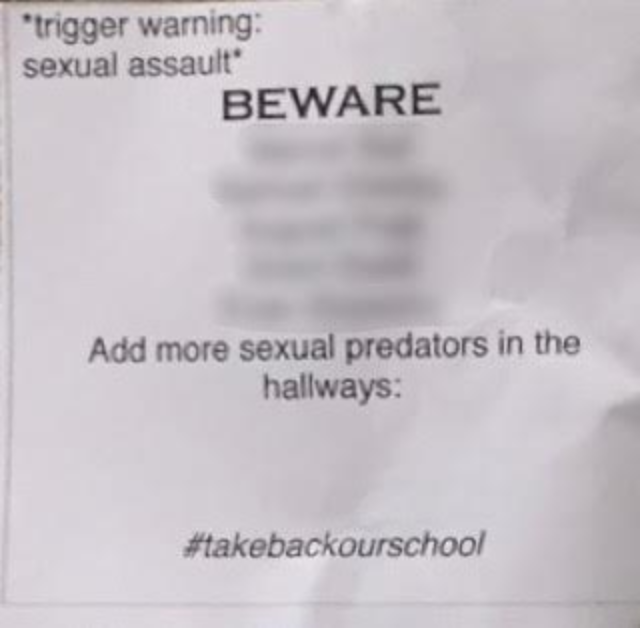
On Thursday April 26, 2018, an anonymous student posted a list in the women’s bathrooms at Grant’s Marshall campus, accusing five students of being sexual predators. The list, which included a section for Grant students to add the names of more people from within the community, was promptly removed by Grant’s campus security team. But photos of the list quickly caught traction via social media. “It was mayhem, like everyone was going crazy,” senior Gwen Baird says. “Somebody showed me a picture of the list and then the whole class started talking about it and even (the teacher) got involved.”
Among the student body, reactions to the list’s posting were split. Micah Mizushima, a senior at Grant High School and president of the Equity branch of student leadership at Grant, remembers the discussion that ensued the next morning in leadership. “The class kind of went at it and it got really chaotic,” he says.
After removing the list less than ten minutes after it was posted, Grant security locked all of the women’s and gender neutral restrooms. In addition, posters that gave examples of situations that are consensual and non-consensual were removed from around the school.
Mizushima believes the response increased the polarization regarding the issue. “A lot of people were in favor of the list, but then a lot of people also felt that it made us take a step back in our work (against) sexual assault at the school, just because previously we had consent posters up and after the list came out (people) were taking those down, and yeah, it didn’t feel very productive in the end.”
When asked about the posters, Grant Principal Carol Campbell did not recall administration taking down the consent posters and was unsure about whether their removal was related to the posting of the list.
But Portland Public Schools (PPS) district policy 4.30.060 P requires that, “all grade 6 through 12 schools shall include the prohibition against sexual harassment on a sign at least 8.5 by 11 inches in size.” Whether or not the removal of the consent posters at Grant High School was a direct action of Principal Campbell, any removal of such posters would be dangerously close to disregarding PPS anti-harassment policies.
The day the list was posted, Grant administration sent out an email notifying parents. The email failed to mention the issue of sexual assault directly, instead focusing on the importance of making those accused feel safe at school. Additionally, Principal Carol Campbell says, “If there was a reason or evidence or whatever that someone had done something here we would definitely involve the police.”
Even though the email focused on the protection of the people on the list, Campbell assures that “we’re not in the business of protecting individuals from getting into trouble – we’re not in that business. We’re in the business of running this school and keeping everybody safe.”
Senior Danny O’Brien, however, believes the administration’s initial response regarding the list was a mismanagement of the issue. “They could have handled it more delicately and respectfully of the people who felt strongly enough about it to make (the list) and to take that risk,” he says.
O’Brien attributes this response to the lack of conversation about sexual assault at Grant in the past. “There isn’t specific school policy in dealing with this stuff that helps victims especially,” he says. “They are reacting as fast as possible and trying to shut it down before people get hurt or something expensive happens.”
But despite the divided opinions on the list or the administration’s response to its posting, the conversation it sparked within the Grant community is undeniable.
In the weeks following the removal of the list, a sit-in located in the front office was held, protesting the way in which administration dealt with issues of sexual assault in the past. “I’ve actually gone with friends to administration to report sexual assault, and I was very disappointed with the outcome … I felt like they didn’t have a whole lot of compassion,” says sophomore Lydia Sheets. “If anyone sexually assaulted me, I would not go to administration … based on my past experiences, I’d probably tell others that as well.”
To combat these problems, a few students met with administration, regarding next steps and increasing administration awareness and action around issues of sexual assault. “(Campbell) met with me the next week and a group of like a ton of other girls and she was so responsive, so ready to help, so prepared, so supportive of our message and what we were doing,” senior Mackenzie Lawrence says.
This year, because of her conversations with administration, Lawrence has brought a branch of the Students Active for Ending Rape (SAFER) club to Grant. She says the goal of the club is to educate students on consent and boundaries in a more academic setting. “It’s more prevention focused. So instead of waiting for sexual assault to happen and kind of waiting and doing more recovery work, it’s more about the prevention, which is just getting everyone to know what consent is and how to ask for it and how to navigate it,” Lawrence says of the SAFER club. “The ultimate goal is to improve the (school) culture.”
But in order to continue the conversations that the list started, Lawrence believes that action should not just be taken by students. “A lot of people wanna learn consent education but they don’t know how to at Grant … it’s gonna be like really hard to catch every single student,” Lawrence says. “(Education) needs to be required in classes. There needs to be assemblies. It needs to be a catch-all thing.”
How did you feel about the posting of the list?
Lydia Sheets – sophomore – she/her
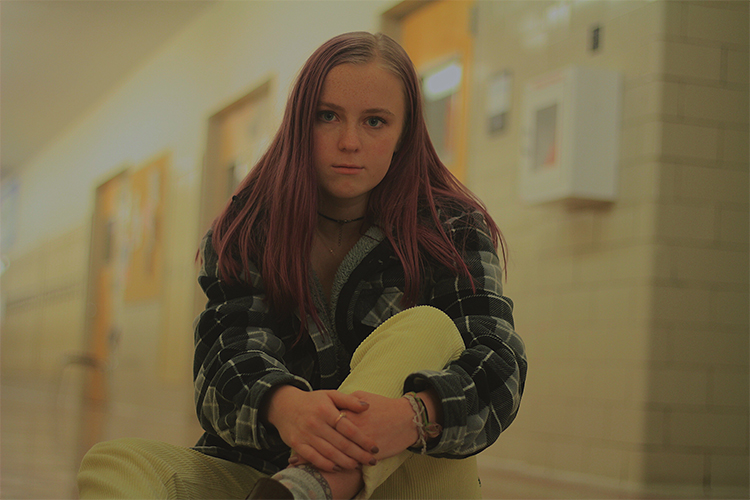
At first, I was just in shock because I knew some of the people on it and, not that closely, but it was just surprising to see them on it. I just felt like putting an anonymous list on the bathroom stall probably wasn’t the best way to handle the situation and at first I was just confused on why they would choose that course of action and it seemed like a revenge type of thing, instead of a serious claim or trying to actually accuse them … I wish we could’ve just encouraged whoever did it to go to admin.
But I’ve had experience with administration … it didn’t seem like they cared that much and then they also asked us questions that I felt were kind of trying to victim blame. (My friend) was under the influence and the person she was accusing was not, and they questioned us about that a little bit, and I just felt like it was kind of irrelevant and not a main detail of this story because if you are under the influence you can’t give consent at all. I wouldn’t put myself through that again if anyone sexually assaulted me.
Micah Mizushima – senior – he/him
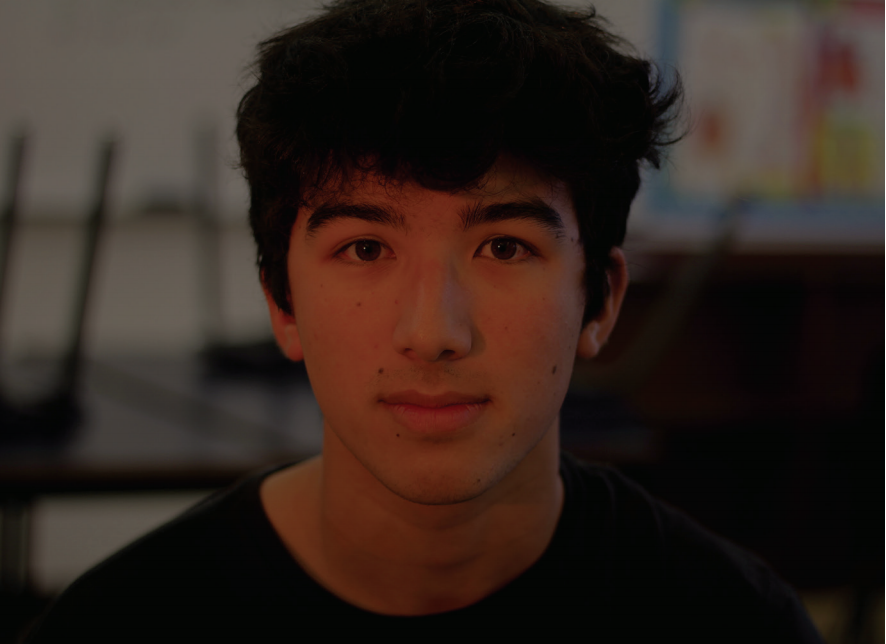
I feel like it was right to remove the list because it was like this giant target on the perpetrator’s back, and that could have gotten out of hand. But I don’t think (administration) should have taken down the consent posters because I feel like those were important … just to remind people that sexual assault isn’t okay and that consent matters. If people are having this idea that everyone is falsely accusing people, then they are going to totally ignore the sensitivity of consent and the importance of it …
I think there needs to be more talk about sexual assault … it needs to be talked about or handled someway or another but (Grant is) not doing a good job of making people aware. It’s just like Race Forward. I think Race Forward should be mandatory. I feel like talking about sexual assault should be mandatory. Talking about the LGBTQ community should be mandatory. These things that are happening in our society should be talked about and addressed and not just ignored or untaught.
Anonymous
As soon as it blew up, the whole school started talking about it. I found out that a guy … was on the list, and he is a guy who I grew up with. He is a great guy.
It is uncool obviously to overstep your boundaries and sexually assault or harass someone, and I think you should just go about it differently … (The list) was the wrong way to go about those accusations in my opinion. You can’t do it in a public setting where it involves people who don’t know what happened.
The way that girls looked at (him) and talked to (him) was completely different … It was just totally different than I’d seen before. And it was sad because nobody wanted to talk to him for a short amount of time while he was, while the list was still being figured out if it was true or false, and it feels bad because he could’ve done that … but I’m so certain that he didn’t do that, and he had to deal with that out of nowhere.
An interview with the anonymous creator of the list:
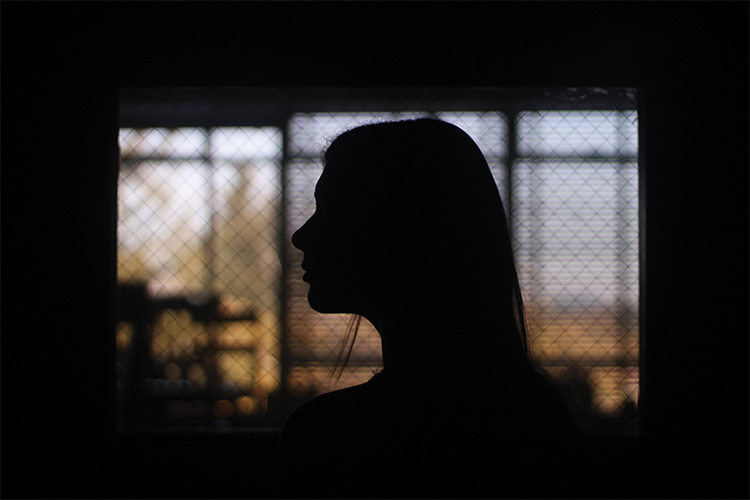
Could you tell us more about why you posted the list?
I had friends who were sexually assaulted by people that went to our school, that were in our grade, in our classes. And those people that had been assaulted would go to the police, or the administration, or whatever and literally in some instances have to be directly next to that person like in a class that had assaulted them.
I’ve had a history of social activism especially at this school, doing certain projects for things, and it was my senior year, and I wanted to make another statement before I left. Partially for myself and partially for my friends who have been assaulted. And (we were) really frustrated that that person who had assaulted them was still one of the most popular people in school.
But the message was, you know, us girls and femme-presenting people are sexually assaulted and targeted, and these people that are doing that are walking through the hallways without any sort of repercussions socially or academically or in any realm.
Why did you choose a list to express your concerns?
I settled on a list because I felt like it was powerful. It was simple and it really got the message across that you know you can’t just do this and have no repercussions. People will step up. People will fight back. People will protect each other. And then when I was deciding who would be on the list, I needed to know a person that had been assaulted by (a person on the list) that I completely trusted and that I had no doubts in my mind. I had heard the story. I had heard the facts. I had heard from that person what happened so I knew that no one was going to be on that list for a mistake.
Looking back on the experience, what would have been a better way for the administration to handle this posting of the list?
I know I put them in a difficult position and that was also on purpose because of their past. Because I know that they have had lots of people come to them with allegations and they haven’t handled it in a wonderful way … I think the number one priority needs to be protecting victims and protecting people that could become victims and so it put them in a tough place because they had to consider that and decide as an administration who they were going to support.
I don’t think that locking the girls bathrooms was a great way of handling it. The (response) email definitely had some holes in it. When I spoke with them personally, like during the sit-in they were standing there and, you know, saying that they were supporting it which, who knows if they really are, but then they had a meeting and you know everyone talked and I think that they were trying at least. They were trying to move in a better direction.
This interview has been condensed for clarity.



